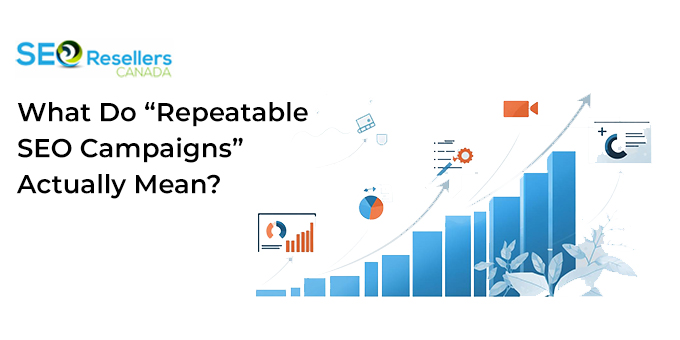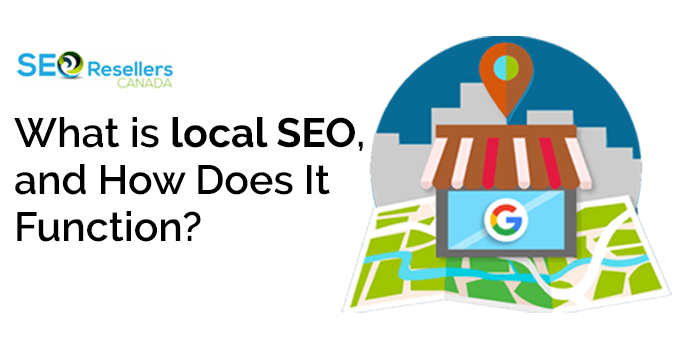Scalability is becoming essential for every business. Repeatable SEO campaigns are no exception. In this approach, agencies do not treat each engagement as an independent campaign. Rather, they apply special techniques that unify keyword research and technical audit, along with content creation and reporting.
This process ensures getting the best-in-class websites’ backlinks and optimization. Organic search results generate 53% of all traffic that goes to websites, which emphasizes the essence of SEO services implementation. This guide will look at how you can create scalable campaigns that meet client goals and can result in lasting growth.
1- How Do Agencies Implement SEO Practices at Scale?

The scheduling of SEO with multiple customers’ needs to be structured and consistent. The objective is to implement established practices in such a manner that they can support quality without compromising efficiencies. The most popular methods for SEO best practices are as follows:
- Standardized frameworks and SOPs: The audit, keyword research, on-page optimization and reporting processes and instructions are recorded in order to create transparency in SEO campaigns.
- Automation and technology: Automation is a time and resource saver. In this way, you can automate crawling site programs and tools, rankings tracking, and reporting tools to save time.
- Project management systems: Project control makes sure that all tasks are automated and that all teams are coordinated.
- Personalization: Strategies are customized based on the client’s goals and industry while maintaining a structured core coping
- Training and knowledge sharing: Constant education keeps teams informed about SEO trends.
- Quality assurance: Periodic verification ensures that the workflows at scale are correct and are performing well.
2- What Are the Challenges in Providing Scalable SEO To Multiple Clients?

Optimizing SEO in multiple clients is a fine-tuning between efficiency and uniqueness. The most common challenge is that what works for one campaign may not be effective for another one. Apart from that, here are a few more challenges listed below:
2.1- Targeting Wrong Keywords
Keywords help websites to become relevant in users’ search results. Many businesses spend their time targeting short tail keywords with little return. The problem with short keywords is that they are highly competitive. As a result, they are challenging themselves to rank search engines.
2.2- Slow Loading Pages
Do you know most of the visitors quit a site if it is not loaded in three seconds? Slow loading of web pages can happen for multiple reasons, such as having low bandwidth at the server, the size of the site, poor latency, etc. It impacts the bounce rate of the web page, which gradually highlights it as a challenge in proving scalable SEO.
2.3- Changing Algorithm
Another problematic thing is changing algorithms. Search engines like Google continuously optimize and modify their crawlers to rank the most relevant pages for users’ queries. While these continuous updates are good for users, they make it difficult for businesses to rank websites.
2.4- Mobile Friendliness
Websites made for desktops are often not compatible with mobile, as each of their layouts is different. Meanwhile, clients prefer websites to be functional on both mobiles and desktops. Thus, it creates a barrier to creating scalable SEO campaigns.
3- Why Is Scalability Crucial for Agencies Handling Multiple Seo Clients?

Scalability in SEO allows businesses to improve web page efficiency, client satisfaction, and long-term business growth. To achieve this outcome, you can look for SEO resellers who provide white label services. Apart from that, here are a few more influential factors of scalability:
- Smart Use of Resources: Scalability will help you with better management of time and resources. It allows teams to concentrate, work smarter and produce better results.
- Quick Onboarding and Setup: Scalable systems facilitate the hiring of new staff in the company. It also equips them with inbuilt templates and proper processes to keep everything on schedule.
- Flexibility: Scalable search engine optimization can make you flexible. You can be flexible in case of any changes in rules in search engines or new trends. This not only allows your site to work well but also builds trust in your audience.
4- How to Systematize SEO-Focused Content Production?
Drafting a structured way to produce content to maintain impressive quality and a healthy flow of content delivery. A link building strategy can allow you to avoid bottlenecks, minimize inefficiencies and achieve deadlines without having to overwork your team. To implement this strategy in a better way, you can use the framework presented below:
4.1- Define the Core Workflow
You should start by mapping the sequence that every piece of content should follow. This step usually includes keyword research, brief creation, content drafting, optimization, and publishing. When you clearly outline the workflow, you can assign proper responsibilities and prevent any mishap that hinder project success.
4.2- Align Tools and Automation
SEO tools have a significant influence on the overall outcome of campaigns. For example, you can use keyword research platforms for intent discovery. Content optimization tools help in semantic alignment and CMS integration for smooth publishing.
4.3- Assign Clear Ownership
You should allocate each stage to specific people so that nothing is overlooked. For instance, SEO specialists can handle keyword research and optimization, strategists prepare a brief, and writers can draft the content to be published on the web page. This division of responsibility ensures accountability from start to finish.
4.4- Framework in Practice
To emphasize how each person can be designated to specific tasks, you can have a look at the table below:
| Workflow Stage |
Automation Opportunities |
Assigned Personnel |
| Keyword Research |
Data collection and trend monitoring |
SEO Specialist |
| Brief Creation |
Use of standardized templates |
Content Strategist |
| Content Production |
Drafting supported by editorial guidelines |
Writers /Content Team |
| Optimization |
Automated checks for on-page factors |
SEO Specialist / Editor |
| Publishing & Distribution |
Scheduling and version control |
Account Manager / Publisher |
5- What Do “Repeatable SEO Campaigns” Actually Mean?

A repeatable SEO campaign follows a structured process to provide consistent outcomes for all clients. The idea is not to create identical strategies for every niche and business. But it is to establish a cycle that guides in researching, content development, optimization, and reporting in a systematic way.
SEO companies mostly adopt standard procedures in the process of carrying out keyword research, site audit, content planning, and link generation. These actions can be repeated as the process is outlined, written, and validated. In this process, the SEO team determines particular keywords, fixes technical problems and develops a customized content strategy on a per-client basis.
Moreover, working with a reliable SEO agency can provide you with access to repeatable methods to achieve superior quality outcomes for all clients. When your SEO campaign scales efficiently, it benefits with better presence on organic search, AI Overviews, and generative engines like ChatGPT and Claude.
6- Value of Repeatability
Efficiency and predictability are related to the repeatability of SEO campaigns. With the help of a systematic approach, quality control might become simplified, and campaigns can be implemented more promptly.
7- Common Challenges in Scaling SEO Campaigns

Managing SEO campaigns often requires external support. In this context, you need to understanding the common challenges in SEO outsourcing. It can help you to prepare for likely issues and maintain consistent results from both your own as well as outsourced teams. In this aspect, here are the three key challenges that are often faced in scaling SEO campaigns:
7.1- Quality Control
Keeping a firm check on quality becomes difficult as the number of projects keep increasing. You may run into problems like metadata mistakes or wrong data may hinder SEO campaign success. The limitations of resources to conduct audits, key search, content development, and link building may cause delays in the review of each project.
7.2- Cross-Team Coordination
The automated campaigns create a bigger risk of miscommunication, which may cause a slowness in attaining desired results. On top of that, with unstructured project management and unclear responsibilities, the possibility of task duplication and errors increases.
7.3- Monitoring and Iteration
SEO campaign scaling adds more information, and this implies that you will need to view rankings, traffic, and technical information of multiple clients at the same time. The unstructured information may make it more challenging to deal with the needs of individual clients.
8- Best Practices for Long-Term Success

The success of SEO campaigns is highly dependent on how you can manage scalability. To improve the campaign’s efficiency, many businesses choose to go with SEO consulting. Besides that, the following practices can help you to build the foundational elements for creating SEO campaigns that remain sustainable and effective over time:
8.1- Documenting Workflow
You can break down each stage of an SEO campaign into specific steps such as keyword analysis, SERP evaluation, content planning, optimization, and publishing. The documentation of workflows allows us to fulfil the needs of each client.
8.2- Standardized Reporting
Analyzing organic traffic growth, visibility for target keywords, and technical site health helps to improve the overall outcome of the campaign. Along with that, a uniform reporting structure can help to reduce the duration of customization and provide clients with clear and reliable insights into performance.
8.3- Maintain Quality Control
Establish review procedures at defined intervals to mitigate issues related to errors in metadata, duplicate content or overlooked redirects. This quality benchmark protects both work accuracy and the client’s trust.
8.4- Balance Templates and Customization
Templates may enhance the efficiency of frequent activities like briefs or audits, but all of them should be customized as per the client’s requirements. Subsequently, the integration of industry standards, competitor research, and audience internet data assures the optimal campaign results.
8.5- Track a Core Set of Metrics
Focus on concise groups of indicators such as ranking, organic sessions and engagement to provide clarity on campaigns. Consistent tracking across accounts helps to identify performance trends and allocate resources appropriately. When you align metrics with content goals, it benefits by ensuring better presence on organic search, AI Overviews, and generative engines like ChatGPT and Claude. This integration improves the overall recommendation of clients’ websites and their content on different search engines and AI-powered searches.
8.6- Schedule Regular Reviews
Regular review keeps your campaigns in check with the changes in the algorithms and with the goals of the client. Your SEO campaigns can easily be adjusted to the current trends within a quarterly or monthly review cycle.
9- How Scalability Helps Agencies Grow Profitably?

As your agency scales, you can increase profits by using your existing resources more efficiently. By following structured workflows, you can manage additional campaigns more smoothly in the same time frame. A scalable process is also helpful in forecasting how much work your team can handle. Along with that, you plan budgets, assign resources and schedule tasks more accurately with scalability. This form of predictability allows you to reduce financial uncertainty and allows your agency to increase profitability.
10- Conclusion
Repeatable SEO campaigns can be implemented with standardizing audit, keyword research, on-page optimization, and reporting all documents correctly. But you should be aware of challenges related to targeting keywords, loading pages, search engine algorithm changes, and the mobile friendliness of websites. These issues can create barriers to achieving the best outcome of SEO campaigns.
In order to systemize your content production, define your core workflow, align tools, and use automation as well as assign each task to a specific person. By following the mentioned practices, you can proficiently achieve scalability and profitability for repeatable SEO campaigns.
11- FAQs
11.1- What is the first step of creating a scalable SEO campaign for multiple clients?
The first step is to define standardized workflows for the keyword research, technical auditing, content production, and reporting. This process creates consistency across your campaigns while onboarding new clients and SEO outsourcing.
11.2- How does automation support the scalability of SEO?
Automation helps you to reduce the manual work in tasks related to site auditing, webpage rank tracking, and content optimization. This process saves time, minimizes errors, and allows you to focus on building guinea strategies for each client.
11.3- How can I manage customization with repeatability for SEO campaigns?
You will be able to develop an SEO structure that will be implemented in all campaigns and adjust it to the goals and industry trends of each of the clients. This way, you can maintain your efficiency in progress as well as offer personalized results.
















